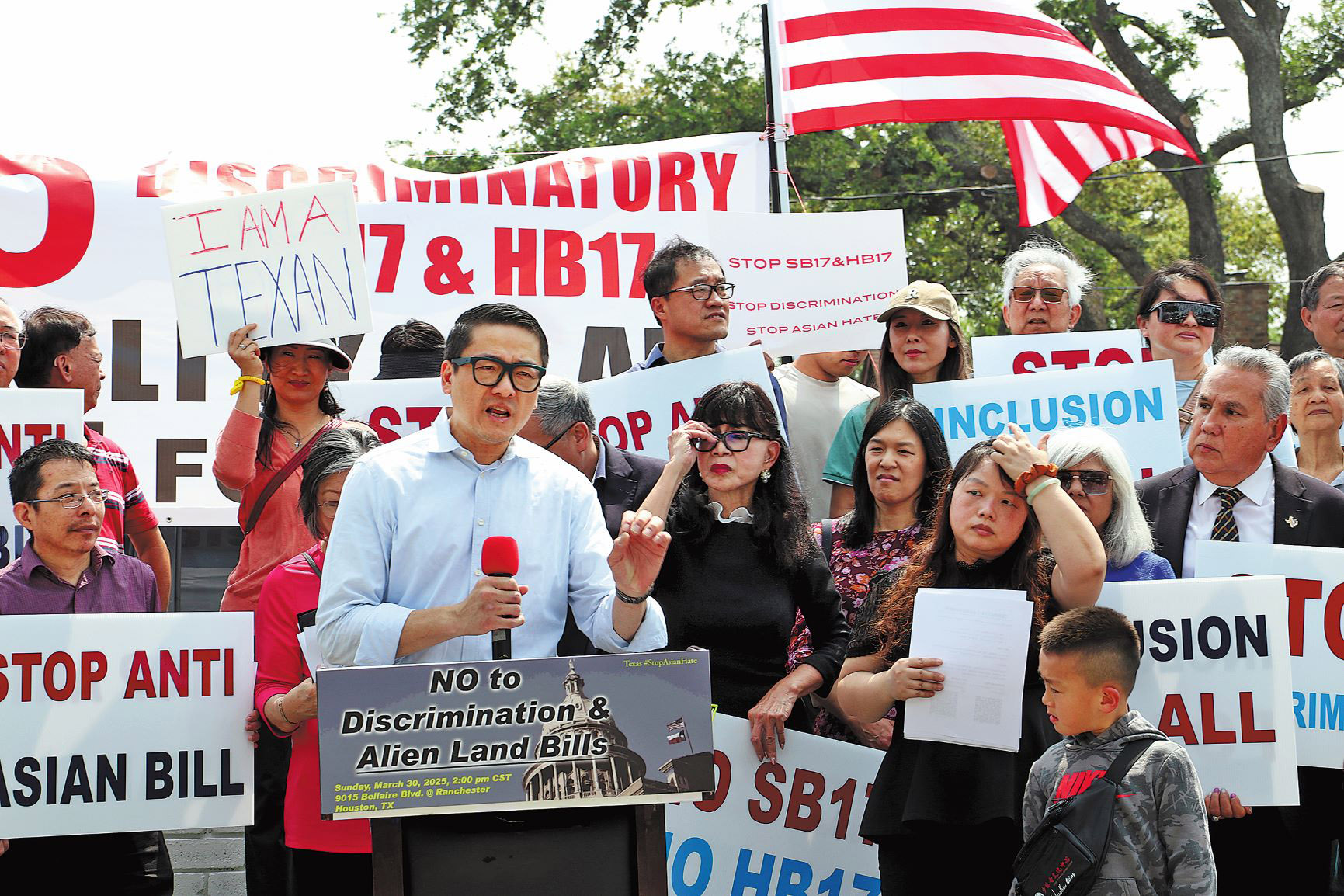
US civil rights leader Gary Nakamura joined a rally against discriminatory land bills in Texas on Sunday, making an impassioned speech on the consequences of laws that restrict foreign nationals, particularly Chinese, from owning property.
"My late grandparents could not own land in the state of California, even though they came to this country back in 1902, because of the original set of alien land laws," Nakamura, national vice-president of the Japanese American Citizens League, told the rally, organized by the Chinese American community in Houston's Chinatown.
"That affects all of us in so many ways. It affects our ability to create generational wealth. It affects our ability to really just have a decent life and pursue the American dream."
READ MORE: With new land laws, history repeats itself
The Texas legislature has more than a dozen land bills that restrict Chinese nationals and entities from purchasing real property in the state. Of them, SB 17, which relates to the acquisition of property "by certain aliens or foreign entities", was recently passed in the state senate, and a similar bill, HB 17, is set for voting soon.
Two years ago, strong protests from the Asian American community prevented such legislation from passing, but now similar bills are arriving in more stringent forms, said Gene Wu, minority leader of the Texas House of Representatives.
"We thought they listened," he said. "And then we came back this year and testified in the senate again, reminding them that these types of laws were discriminatory. And they promised us that they would fix it, they would change it. And they made it even worse. They made it even more dangerous for us."
At the rally, Nakamura said alien land laws across the United States during World War II led to distrust and misinformation that "ultimately resulted in the mass incarceration of over 125,000 people of Japanese ancestry".
Rallies against the bills were also held in Dallas and Austin over the weekend, joined by elected officials and leaders from 46 Texas and 30 national organizations, including civil rights groups from the African, Iranian and Latino communities, according to organizers. US Representative Al Green from Houston attended the rally in Dallas.
Leading the fight
Wu, who led the fight to defeat the Texas alien land law SB 147 two years ago, is again at the forefront of the protests. The current bills stipulate that "the government can come and just file a lawsuit against your property without letting you know, without letting you even have a chance to fight for it", he said. "And they can just take it."
A lawyer by profession, Wu said the provision would create an in rem action, which is rare but was used before against Japanese Americans during WWII. In rem refers to a focus on property rather than individuals.
"These same types of provisions were used to take their property, bank accounts, cars, farmhouses, everything without asking," Wu said, warning that the bills could be pathways to a second Chinese Exclusion Act or Chinese internment similar to what Japanese Americans suffered.
After the rally, Wu said many people in the community think that they will be fine because the bills target only Chinese nationals.
He warned that citizenship will not protect the community with these types of laws because when people of Japanese ancestry were rounded up at gunpoint, two-thirds of them were US citizens, born and raised here.
Kenneth Li, nicknamed "the mayor of Chinatown" for his many civic roles, said regarding the authors of the bills who are from Houston and its suburbs, "Don't give them money, don't vote for them, and find somebody else to vote against them, and get them out."
ALSO READ: Chinese ownership of US farmland at 'less than 0.03%'
Austin Zhao, partner and vice-president of Transworld Business Advisors of South & West Texas, New Mexico, and Wyoming, was one of more than 200 people at the rally.
"Many people in the community haven't realized the potential impact on Chinese Americans that such bills would bring," Zhao said.
"It's not about land; it's political discrimination against all Chinese here, and it will negatively impact us and our future generations."
Chinese Americans tend to be less politically engaged, he said. "You have to fight for your own rights. Political participation is very important and powerful. If you are not at the table, you are under the table."


